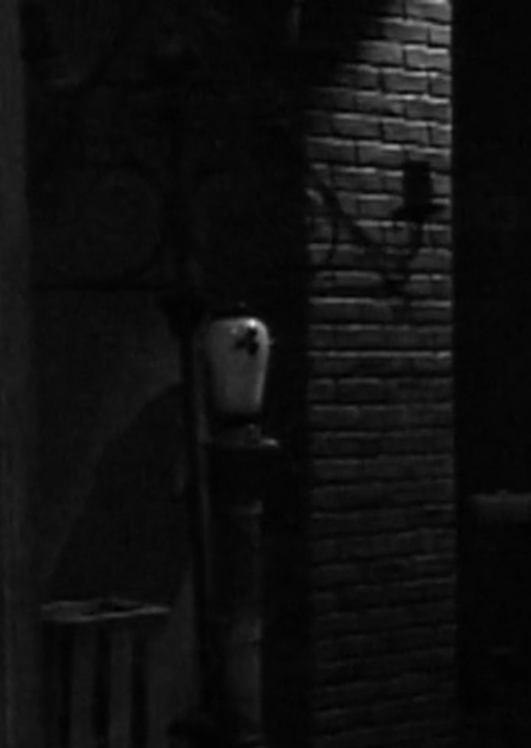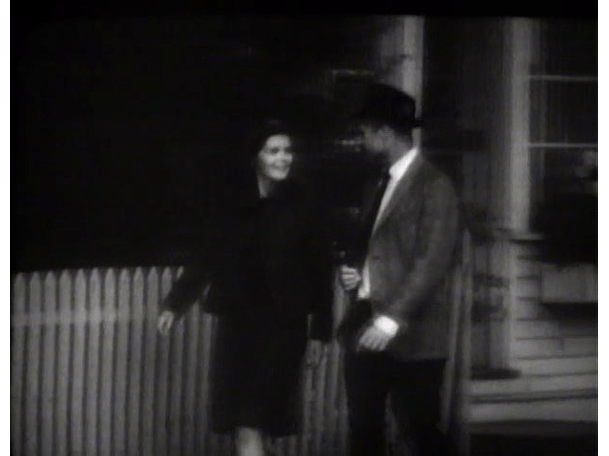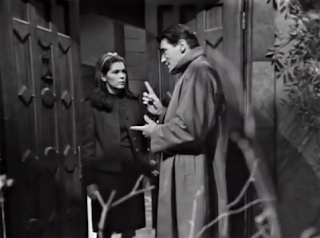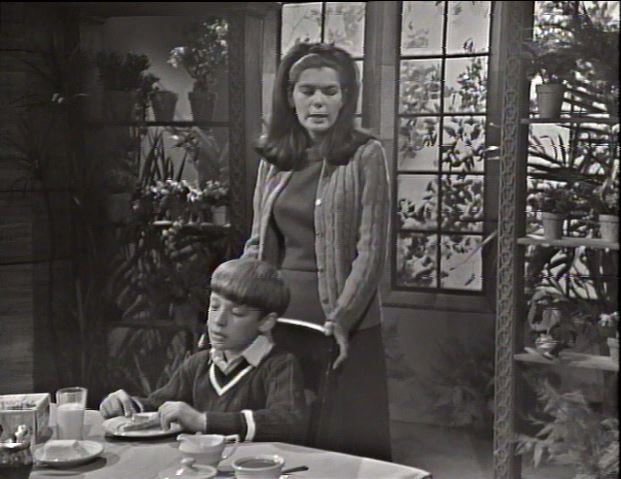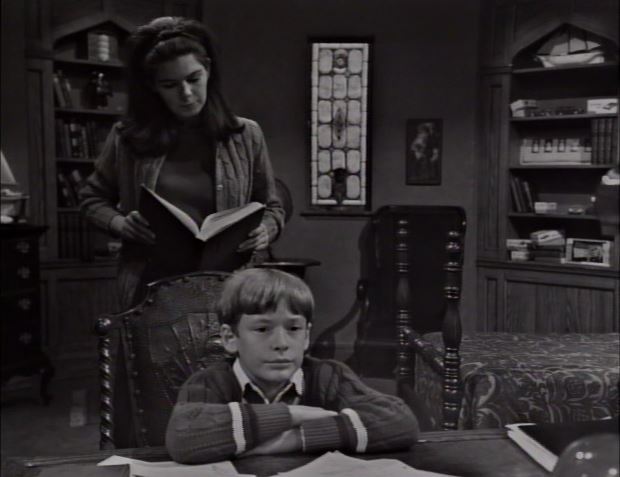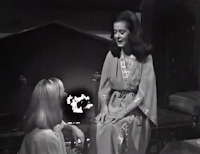Maggie Evans, The Nicest Girl in Town, is worried about her father, drunken artist Sam. Maggie’s boyfriend, hardworking young fisherman Joe, is with Maggie at the Evans Cottage, waiting for Sam to come back from his current binge.
Maggie is particularly worried about Sam’s attitude towards a mysterious woman who has recently returned to town. Maggie doesn’t know who the woman is, but yesterday, Sam and the audience found out. She is Laura Collins, estranged wife of high-born ne’er-do-well Roger Collins. Laura is the other witness to an incident ten years ago that Roger paid Sam not to tell the police about. It was his guilt about that bribe that started Sam drinking in the first place, and he is terrified that his secret will come out. As Maggie and Joe talk about Sam, Sam is in the tavern with Roger, trying to figure out why Laura has come back to town.
Roger goes home to the great house of Collinwood and tells his sister, reclusive matriarch Liz, that Laura has come back to town. Liz wonders why Roger is afraid of Laura. Roger denies being afraid of her, and Liz loses interest in the question. She wonders what Laura wants. At the thought that Laura might want to see strange and troubled boy David, the son she shares with Roger, Liz expresses emphatic opposition. Liz thinks of Laura as a severely disturbed woman, and is convinced that seeing his mother would only harm David.
Sam returns to the Evans Cottage. Joe sees that he is massively drunk, and whispers an offer to Maggie to help her take care of him. She declines, saying that she has plenty of experience. Sam insists on starting a painting. Maggie can’t stop him, and goes to bed.
Sam lights a cigarette and stares raptly into the flame, as we saw Laura do yesterday. He then goes to the canvas and makes painterly motions with great rapidity.
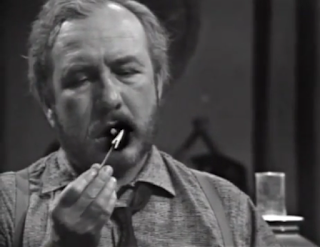
The following morning, Maggie wakes Sam up. He lies passed out on the couch, a liquor bottle that had been mostly full the night before empty on the floor beside him. In response to his protests, she refuses to leave for work with him unconscious. On her way to make coffee for him, she sees the painting he did the night before. She remarks that it is not in any style she’s ever seen him use before, and he doesn’t remember a thing about it. It depicts a woman in flames. He reacts to the painting with horror.
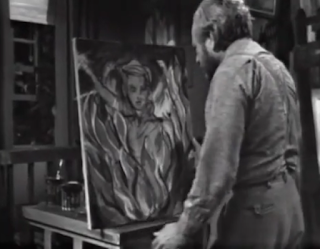
Dark Shadows has already shown us portraits as powerful objects, even as a locus for the natural and supernatural. Just on Monday, the ghost of Josette Collins (which, like Maggie Evans, is played by Kathryn Leigh Scott) emerged from the portrait of Josette in the Old House and brought about the climax of a story arc that began in episode 38. Now we see where these eerie portraits come from.
We will see more portraits created by possessed artists in the years to come. Something else happens in this episode for the first time, but not the last. The bartender at The Blue Whale, who has been addressed variously as “Bill,” “Joe,” “Mike,” “Andy,” and “Punchy,” today answers to “Bob.” That’s the name they settle on, perhaps because the actor’s name is Bob O’Connell.


